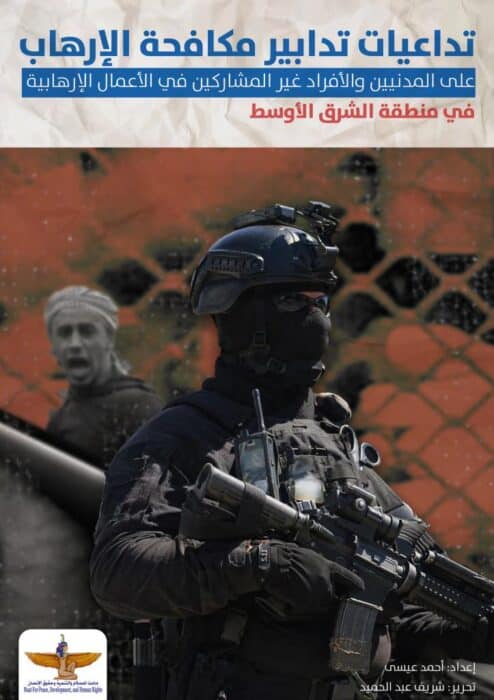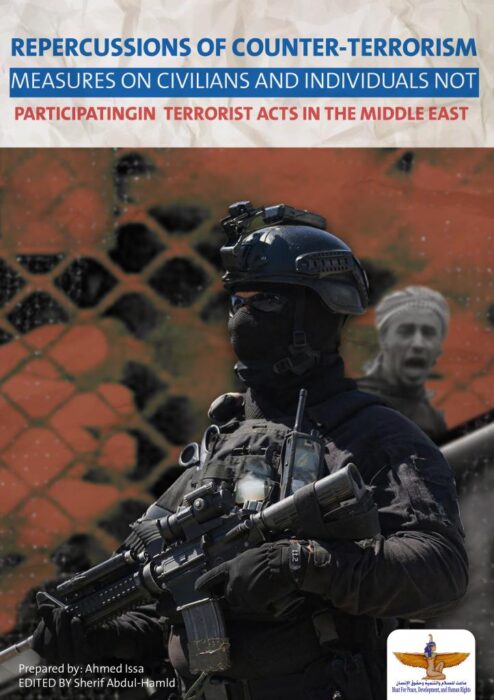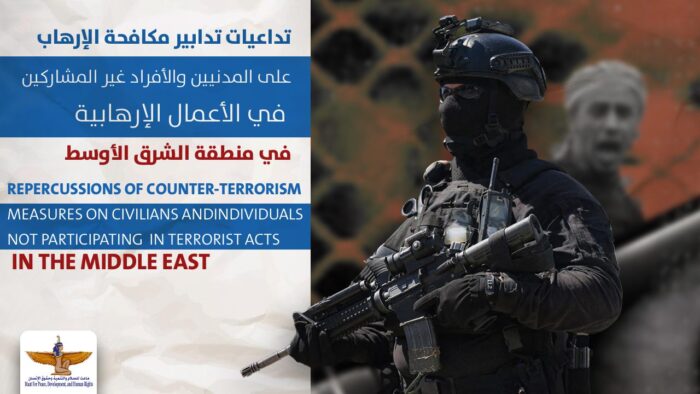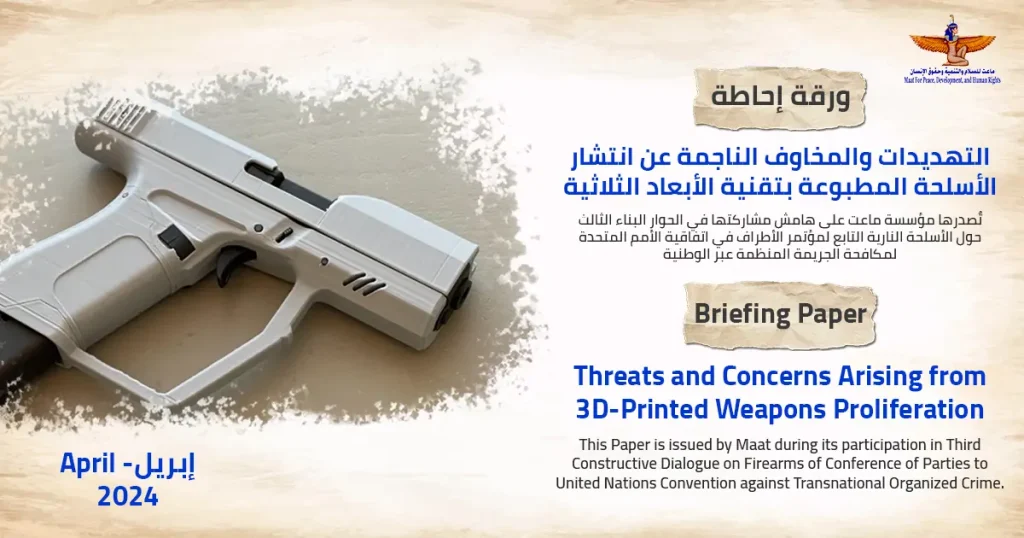Okeil: We demand that law enforcement agencies are trained on international standards for the use of force in order to reduce the number of victims resulting from counter-terrorism actions
Abdul Hamid: We recommend limiting the excessive use of air strikes and drones in counter-terrorism activities
Coinciding with the International Day of Remembrance and Tribute to the Victims of Terrorism, Maat issued a report entitled "The Implications of Counter-Terrorism Measures on Civilians and Individuals Not Participating in Terrorist Acts in the Middle East" to address the negative effects and repercussions of international counter-terrorism measures on the conditions of civilians not participating in the terrorist acts and residents of the areas covered by the anti-terrorist acts that are being carried out in the Middle East.
The report includes three main axes; the international legal framework for the protection of individuals not participating in terrorist acts in the context of counter-terrorism actions, the repercussions of measures to combat international terrorism on individuals within the areas covered by the fight, in addition to the rights of victims of acts resulting from combating international terrorism.
The report also indicated that the United States of America, in the context of its international war on terrorism in many countries of the Middle East, killed thousands of civilians and ordinary individuals not participating in terrorist or hostile acts. Besides, according to 1,300 reports of the Ministry of Defense, it has been confirmed that since 2014, America has been involved in the killing of more than 1,417 civilians, due to air strikes in the context of its campaign against ISIS in Iraq and Syria, as well as the killing of at least 188 civilians in the context of its airstrikes that targeted Al-Qaeda and ISIS in Afghanistan since 2018.
In this context, Ayman Okeil, an international human rights expert and president of Maat, pointed out that the counter-terrorism measures adopted by some governments in the Middle East countries, especially in Syria, Afghanistan and Iraq, have often led to casualties among civilians and ordinary individuals not involved in any of the hostilities. This flags up the government’s indifference to and violation of the basic human rights of civilians living in the areas targeted by the counter-terrorism operations, as well as their failure to observe many of the principles of the use of force stipulated in international humanitarian law and international human rights law.
In the context of the counter-terrorism measures, Okeil added, states and governments must abide by the principles of the use of force stipulated in international humanitarian law and international human rights law, including the principle of necessity, distinction, proportionality and the gradual use of force. Okeil called for educating law enforcement agencies about the international principles and standards for the use of force in order to reduce the number of victims of counter-terrorism measures, and to avoid targeting civilians and ordinary individuals not participating in hostile or terrorist acts.
On his part, Sherif Abdul-Hamid, Director of the Research and Studies Unit at Maat, said that the number of civilian casualties has been exacerbated by the modern techniques of air strikes launched by drones. The UN airstrikes carried out by drones in the context of its war on terrorism in Iraq, Syria and Afghanistan led to the killing of many civilians.
Abdul-Hamid added that according to credible sources, the United States of America has carried out more than 50,000 air strikes since 2014, and that, at least, one out of every five American air raids resulted in civilian casualties.
Abdul-Hamid, therefore, recommended limiting the growing reliance on air strikes and drones in counter-terrorism measures due to their disproportionate impact on civilians and their destructive scale, and to provide compensation for losses incurred by innocent victims who were not participating in hostilities or terrorist acts during the counter-terrorist operations.

 |
 |











